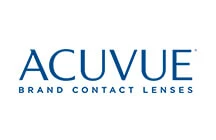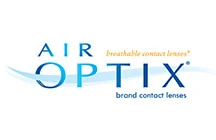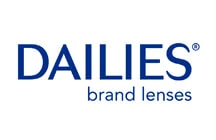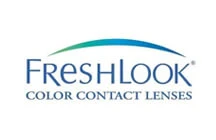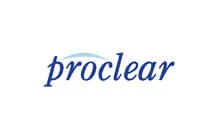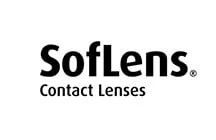Contact Lens Exam
At Eyes on Brickell, our team of expert doctors, including Dr. Antoine Copty, understands the importance of a thorough contact lens eye exam. Whether it is color lenses or extended wear, we utilize the latest technology and techniques to provide our patients with the most comprehensive evaluation possible, ensuring that their contact lenses fit properly, provide clear vision, and are comfortable to wear.
Our team will guide you through the process, explaining every step of the exam and addressing any concerns you may have. We also offer a wide range of contact lens options, including specialty lenses for conditions such as astigmatism or presbyopia, to ensure that our patients receive the best possible vision correction. Our goal at Eyes on Brickell is to provide personalized and compassionate care to each patient. Moreover, we conduct contact lens exam in Miami, which is just one of the many ways we achieve this.
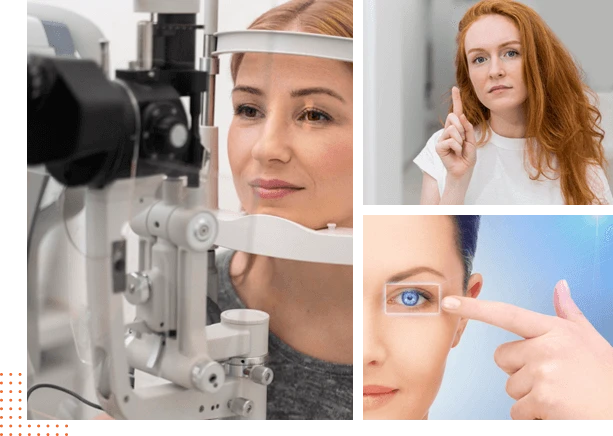
What is Contact Lens Exam?
A contact lens examination is a specialized eye exam that evaluates whether an individual is a suitable candidate for contact lenses and determines the correct type of contact lenses for their eyes.
During this exam, an eye doctor will evaluate the patient’s eye health, vision, and refractive error. They will also measure the curvature of the cornea and assess the size of the pupil and the moisture level of the eyes. The doctor may also perform additional tests to determine if there are any underlying eye conditions that may affect contact lens wear, such as dry eyes, astigmatism, or allergies.
Why it is Important?
The importance of the best contact lens eye exam lies in the fact that contact lenses are medical devices and can cause serious eye problems if not fitted and used correctly. Poorly fitted contact lenses can cause discomfort, irritation, and even infections. If left untreated, infections can lead to corneal ulcers, which can cause permanent vision loss.
Benefits of a Contact Lens Eye Exam Include
Advanced Contact Lens Fitting
Advanced contact lens fitting is a specialized procedure that involves evaluating the eye’s shape and size to determine the best type of contact lens for the patient. It considers a patient’s health and visual requirements, lifestyle, and the specific characteristics of their eyes. In Advanced Contact Lens Fitting, we accommodate a variety of lenses, including:
- Toric Lens: Toric lenses are designed to correct astigmatism, a refractive error produced by an unevenly shaped cornea or lens. These lenses have different powers in different meridians of the lens to correct the astigmatism, providing clearer vision.
- Multifocal Contact Lens: Multifocal contact lenses combine multiple prescriptions in one lens. There is usually a prescription for very close things, one for regular items viewed from a distance and one for intermediate distances. This setup assists persons with presbyopia in correcting age-related vision issues in which the eye cannot focus on objects up close.
- Rigid Gas Perm Lens: A Rigid Gas Perm Lens is also known as a gas permeable (GP) contact lens. They are made of hard contact lenses made of silicone-containing compounds that allow the eye to breathe. Moreover, they are often used in irregular corneas, high astigmatism, or keratoconus cases.
- Rose K Fittings: Rose K lenses are RGP lenses specifically created for patients with keratoconus, in which the cornea thins and bulges into a cone shape. Individuals with keratoconus benefit from these custom-fitted lenses, which provide pleasant and clear vision.
- Duette Contact Lenses: Duette lenses are hybrid contact lenses that blend soft lens comfort with RGP lens clarity and stability. They contain a hard center surrounded by a soft skirt, allowing clear vision and comfort for various eye diseases.
The following are some of the elements that are included in advanced contact lens fitting:
- Corneal Topography: This test measures the shape of the cornea to determine the best contact lens fit for the individual.
- Tear Film Analysis: The quality of the tear film is evaluated to ensure that the patient has an adequate supply of natural tears to keep the contact lenses hydrated and comfortable.
- Pupil Size Measurement: The size of the pupil is measured to ensure that the contact lenses provide optimal vision correction in various lighting conditions.
- Contact Lens Material Selection: Different materials are used for contact lenses, and the best one for the patient’s eyes is selected based on factors such as oxygen permeability, moisture retention, and durability.
- Contact Lens Design Selection: The design of the contact lens is chosen based on the patient’s visual needs, such as correcting nearsightedness, farsightedness, astigmatism, or presbyopia.
- Trial Contact Lens Fitting: Trial contact lenses are fitted to evaluate the fit and comfort of the lenses. This step is crucial in determining the best contact lens for the individual.
- Follow-up Care: Advanced contact lens fitting includes follow-up appointments to ensure that the contact lenses are comfortable and provide optimal vision correction. This also allows for adjustments to be made if necessary.
In conclusion, contact lens examination is essential for anyone considering contact lenses as a vision correction option. It ensures proper fitting, reduces the risk of infection, allows for customization, and improves vision. It is recommended that individuals who wear contact lenses have an annual contact lens eye testing to ensure that their eyes remain healthy and their lenses continue to provide optimal vision correction.
Are you looking for multifocal contact lenses in Brickell? We offer a wide variety of contact lenses to optimize vision correction for your individual needs and lifestyle. Our team has the expertise to fit you with the best possible lenses based on your unique visual needs. Contact lens options include daily disposable lenses, bifocal and multifocal lenses, hybrid lenses, scleral lenses, cosmetic contact lenses, CRT for corneal refractive therapy and lenses for astigmatism correction.
Top Brands For Contact Lens
